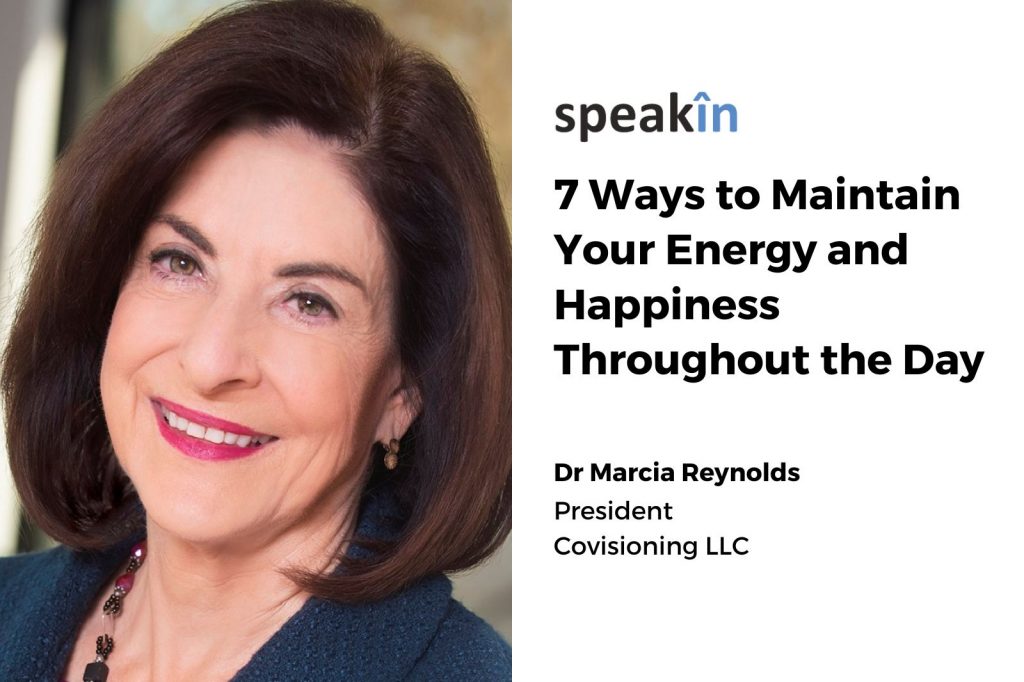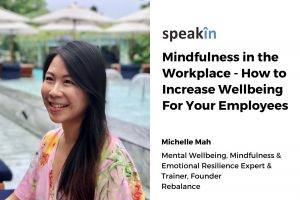7 Ways to Maintain Your Energy and Happiness Throughout the Day

Although we look to the holidays as a break from work, the stress you may experience runs the gamut due to family expectations, food imbalances, disrupting routines, and worries about work not getting done. Even your plans for fun can be rocked by traffic snarls and next-day mental and physical hangovers.
You will be bombarded with self-care suggestions around diet and managing stress. These lists are useful but fall short of impacting your whole self. I have a self-care checklist you can download that covers the key elements of your personal foundation. After hearing Saundra Dalton-Smith, M.D., author of Sacred Rest, speak at TEDxAtlanta, I learned how a “rest deficit” will also seriously impact your happiness and health.
Dr. Dalton Smith discovered the gaps in our restful activities when diagnosing persistent common ailments in her patients. Helping them get the rest they needed often restored their long-term health.
Sleep is not the same a rest. You won’t sleep well if you lack one of the seven types of rest she identified that you need to feel happy, productive, and fulfilled.
These ideas can help you smile more throughout the holidays. Make them habits to feel better every day.
7 Rest Routines for Self-Care and Happiness
1. Mental Rest
When your mind is tired, you make mistakes and experience memory lapses. The more you let your mind focus on past events you would like to redo and assuming worst case scenarios about future events, the quicker you wear out your brain. Throughout the day and evening, schedule activities that take little thought. If you can, take a walk outside where it’s safe and hopefully, quiet. Notice your surroundings. Allow yourself to feel the awe of a beautiful sunset, the bloom of a flower, plants soaking up drops of water from rain, or a child’s touch. If you can’t go outside, be still or meditate in five-minute blocks. In the evening, it’s okay to watch some mindless TV to let your brain process what occurred during the day. Hopefully, you will laugh a little before you go to sleep.
2. Spiritual Rest
This is not necessarily about religion; it’s about your sense of connection to something bigger than yourself. It is about having faith that goodness will prevail. If you don’t have a life purpose, you can cultivate a sense of purpose and value when you discover what you do that gives you the pleasure of fulfillment. Maybe your heart feels bigger when you smile at or perform an act of kindness for someone else or you have acted toward improving your community or larger world we live in. Music or uplifting videos can reunite your body-mind-spirit. Even an inspiring morning quote can prepare you well for the day; consider subscribing to a daily quote from Grateful.org. Journal uplifting moments to preserve them when you feel disconnected.
3. Emotional Rest
Often when my clients articulate what they feel they have lost in their lives and then cry, the release leads to relief and even laughter. Or the constant pressure to perform leads to emotional overload. Find people you trust won’t judge you or bombard you with advice to talk about the pressures you feel. Say no when your plate is too full. When you feel slighted, ignored, unappreciated, or misunderstood, declare you feel this way and ask for what you need to move the conversation or relationship forward. When you notice you are hesitating to reach out to someone or start a new task, ask yourself what you are afraid will happen. Articulating fears often decreases the power they have over your actions. Be sure you have people in your life whose positive perspective inspires your own brighter view. Hang out with people you tend to smile with when you need an emotional lift.
4. Social Rest
You can feel lonely even around a lot of people. We all need to be seen, loved, and enjoyed by others. Hopefully, you get this from people you can relax with who you aren’t afraid will judge you. Make new friends with like-minded people, whether to hike together, read and talk about books, champion a cause, share challenges of your profession, or enjoy the same hobby as you. Hopefully, you can meet live but remote gatherings can work if there everyone has a chance to safely share their thoughts.
5. Sensory Rest
Most of us are overloaded with noise in our environments, interruptions from our computers and phones, artificial light, stressful driving, and other distractions at work and home. There are even restaurant critics who include the noise decibels of restaurants in their reviews. You need to take breaks from your electronics to rest your mind and vision. Immerse yourself in music, get whiffs of fresh air, use aromatherapy or cooking to take in good smells, and rub your hands in things you love to touch to awaken your senses.
6. Creative Rest
We often lose our avenues to express our creativity as we age. You might find ways to express your creative talents in an art or hobby you enjoy. If you like, seek performances of music, dance, and comedy to reawaken your appreciation of beauty and whimsy. Take time to notice people details even in mundane environments. There are so many amazing things to notice even at the grocery store.
7. Physical Rest
Your body needs recovery time whether you are an athlete or you sit in a chair all day. Before your body hurts, take a few minutes to stretch and take in deep breaths throughout your day. When you release tension and calm your body, your productivity and outlook will improve.
Check out the book Sacred Rest. You will get tools and tips to get the rest you need plus an assessment at the end of the book to better identify your deficits. This book will not only improve your coaching, it could save your life.
Immerse in more interesting and engaging reads at: https://covisioning.com/brain-tips-blog/
About The Writer
Dr. Marcia Reynolds has coached leaders, delivered leadership and emotional intelligence programs, and spoken at conferences for clients in 43 countries. She has also presented at many universities including Harvard Kennedy School and Cornell University.
Marcia is a pioneer in the coaching profession. She was the 5th global president of the International Coach Federation and is one of 20 coaches recognized in the ICF Circle of Distinction. Currently, she is the training director for the Healthcare Coaching Institute in the US and on faculty of 5 coaching schools in Asia and Europe.





